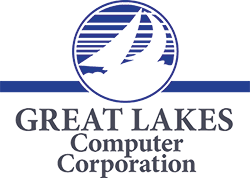 You’ve been successful in business and your company is growing. But with growth comes expansion. Increases in staff and equipment can quickly turn your current office space from roomy to congested. Once you find a new office space, you are faced with the daunting task of relocation. Moving is never easy, and there are bound to be bumps in the road. Here are 5 tips to help you ease the transition from Unpakt.com.
You’ve been successful in business and your company is growing. But with growth comes expansion. Increases in staff and equipment can quickly turn your current office space from roomy to congested. Once you find a new office space, you are faced with the daunting task of relocation. Moving is never easy, and there are bound to be bumps in the road. Here are 5 tips to help you ease the transition from Unpakt.com.
1. Plan well in advance
If possible, start planning your move 4-6 months before you actually want to make the transition in order to attend to all of the details without becoming overburdened. Once you know you’re moving into a new office, scope out the space and decide on the layout, including where everything and everyone will go. That will allow you to plan out what your needs are as far as new office equipment goes, and give employees an opportunity to do their own planning ahead for their new space. Create a map or floorplan and make it available to both employees and movers so that everyone knows the plan moving ahead.
2. Hire your moving company early
Since moving a corporate office involves a lot of equipment and details, be sure to get a full estimate and hire a full-service moving company 1-3 months ahead of time. Make sure they have experience with commercial relocation and have them give you an on-site quote for the move — or even better, get recommendations from others in your network who have moved offices before. The movers should be held to the same professional standard as anyone else you do business with.
3. Get the IT Team on board
Give your IT team three months advance notice to start planning the transfer of all things technical: equipment, internet plans, phone connections, etc. They will need to evaluate the new space for any upgrades that need to be made, either to the infrastructure or to equipment being brought to the new office. When relocating a corporate office you want your landing to be as smooth as possible on the tech side, so do the legwork well in advance.
4. Do a deep cleaning
Don’t bring things you don’t need! Shred all unnecessary papers, get rid of office furniture that has been collecting dust, and sell or donate equipment that you won’t be needing anymore. Anything you choose to donate can be used as a tax write-off, so check with your accountants to find out what sort of paper trail you need to create as you purge.
5. Order new equipment well in advance
You want to have everything you need when you move offices, so 1-2 months in advance, put in your orders for new equipment and furniture so that it will be there and ready for you to unpack and settle in. Be careful ordering too many large items though, or you’ll end up paying for their shipping twice: once to get to you, and once to be moved… again. Coordinate with your suppliers to have your purchases arrive at the new office just before you move in.
One of the biggest issues to focus on is your technology. If your computers are down, your business isn’t making money. Hiring an IT company with experience in office moves is crucial. Great Lakes Computer can help get your equipment safely packed up, transferred, and up and running in no time.



